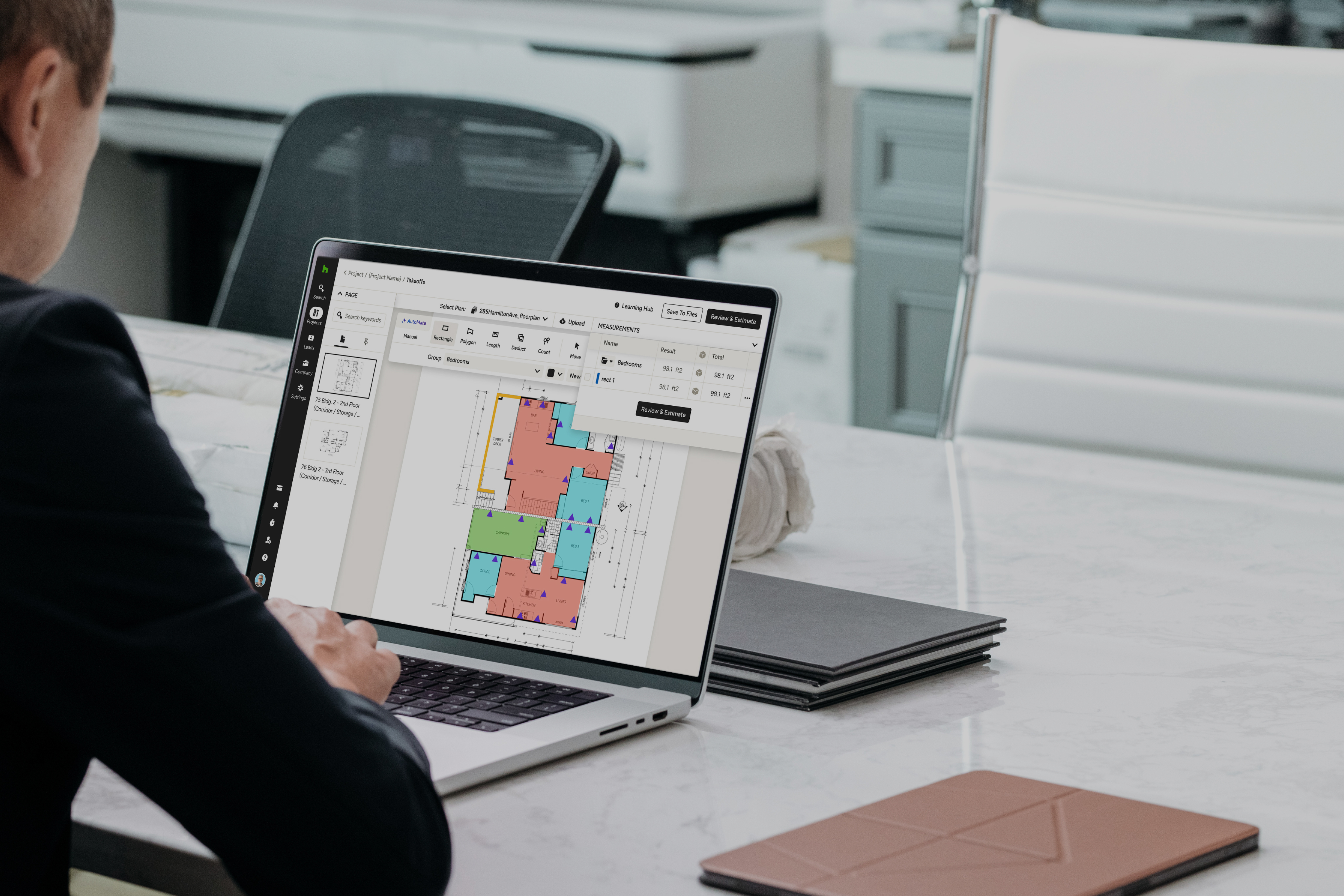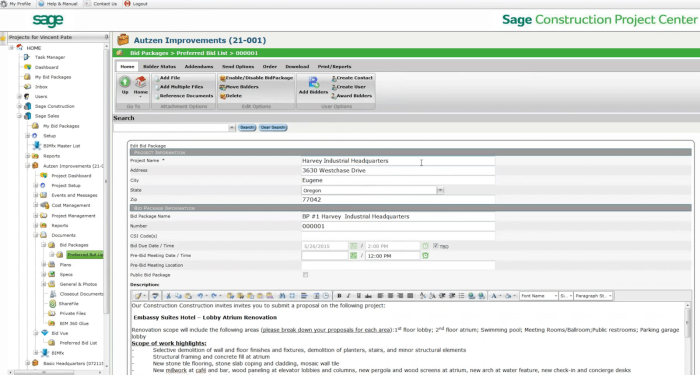Estimate software for contractors is revolutionizing the construction and contracting industry. Accurate and efficient estimating is crucial for profitability, and these software solutions offer a range of features designed to streamline the process. From material costing and labor calculations to generating professional proposals, these tools empower contractors to bid competitively, manage projects effectively, and ultimately, increase their bottom line.

Source: prismic.io
This exploration delves into the benefits and functionalities of such software, highlighting its impact on modern contracting practices.
The software typically incorporates features such as integrated databases of materials and labor costs, allowing for quick and accurate pricing. Many programs also offer project management tools, helping contractors track progress, manage resources, and maintain client communication. The ability to generate professional-looking proposals and reports is another key advantage, contributing to a more polished and efficient client interaction.
In the competitive landscape of contracting, accurate and efficient estimating is paramount. Underestimating a project can lead to financial losses, while overestimating can make your bids uncompetitive. This is where robust estimate software steps in, transforming the way contractors manage projects from initial quote to final invoice. This comprehensive guide delves into the world of contractor estimating software, exploring its features, benefits, and how to choose the right solution for your business needs.

Source: constructioncoverage.com
We’ll cover various aspects, from basic functionalities to advanced features like AI-powered integrations, ensuring you have a clear understanding of how to leverage technology for growth and profitability.
Understanding the Importance of Contractor Estimating Software
For contractors, accurate estimating isn’t just about winning bids; it’s about profitability and business sustainability. Manual estimating methods, relying on spreadsheets or pen and paper, are prone to errors, inconsistencies, and time-consuming calculations. This can lead to:
- Lost Revenue: Underestimating materials, labor, or unforeseen expenses can severely impact your profit margins.
- Missed Opportunities: Inaccurate estimates can make your bids uncompetitive, leading to lost projects.
- Increased Administrative Burden: Manual calculations and data entry are time-consuming and inefficient.
- Poor Cash Flow Management: Inaccurate estimates can lead to unexpected costs and disrupt your cash flow.
- Reduced Project Visibility: Lack of centralized data makes it difficult to track progress and manage resources effectively.
Estimate software addresses these challenges by providing a centralized platform for managing all aspects of the estimating process, from material costs to labor hours and potential risks. This leads to improved accuracy, efficiency, and ultimately, a healthier bottom line.
Key Features of Effective Estimate Software for Contractors
While specific features vary across different software solutions, several core functionalities are crucial for any contractor looking to improve their estimating process. These include:
1. Material Cost Estimation
The software should allow for easy input of material costs, either by manually entering data or integrating with external suppliers’ databases. This ensures accurate pricing and reduces the risk of errors associated with manual data entry. Look for features like:
- Integrated Material Databases: Access real-time pricing from suppliers.
- Customizable Material Libraries: Create your own database of frequently used materials.
- Automatic Updates: Ensure pricing remains current.
2. Labor Cost Calculation

Source: comparecamp.com
Accurately estimating labor costs is critical. Effective software should allow you to:
- Track Labor Rates: Input hourly rates for different crew members or skill levels.
- Estimate Labor Hours: Easily calculate the time required for each task.
- Include Overheads: Account for benefits, insurance, and other labor-related expenses.
3. Project Management Integration
Seamless integration with project management tools is essential for efficient workflow. Look for software that can:
- Sync with Existing Project Management Systems: Avoid data silos and streamline workflows.
- Track Project Progress: Monitor progress against estimates in real-time.
- Generate Reports: Create comprehensive reports to track project performance and profitability.
4. Markup and Profit Margin Calculation
Profitability is key. Good estimate software should facilitate:
- Automated Markup Calculation: Easily apply markup percentages to costs.
- Profit Margin Analysis: Analyze profitability at different markup levels.
- Scenario Planning: Explore the impact of different cost scenarios on profitability.
5. Reporting and Analytics
Data-driven decision making is crucial. Effective software should provide:
- Customizable Reports: Generate reports tailored to your specific needs.
- Data Visualization: Present data in clear, easy-to-understand charts and graphs.
- Historical Data Analysis: Track trends and identify areas for improvement.
6. Mobile Accessibility
On-site access is crucial for many contractors. Choose software with:
- Mobile App: Access and manage estimates from anywhere.
- Offline Capabilities: Work even without internet connectivity.
Choosing the Right Estimate Software for Your Business: Estimate Software For Contractors
Selecting the right software depends on your specific needs and budget. Consider the following factors:
- Type of Projects: Residential, commercial, or specialized projects require different functionalities.
- Business Size: Small contractors may need simpler solutions than large enterprises.
- Budget: Software pricing varies widely, from free options to enterprise-level solutions.
- Integration Capabilities: Ensure compatibility with your existing software and hardware.
- User-Friendliness: Choose software that is easy to learn and use.
- Customer Support: Reliable customer support is crucial for resolving issues and getting assistance.
Frequently Asked Questions (FAQ)
- Q: What is the cost of estimate software for contractors? A: Costs vary greatly depending on features and vendor. Some offer free plans with limited functionality, while others charge monthly or annual subscriptions, ranging from a few hundred to thousands of dollars per year.
- Q: Can estimate software integrate with my accounting software? A: Many estimate software solutions offer integrations with popular accounting platforms, streamlining financial management. Check for compatibility with your specific accounting software.
- Q: Is estimate software difficult to learn? A: Most modern estimate software solutions are designed with user-friendliness in mind. Many offer tutorials and excellent customer support to ease the learning curve.
- Q: What are the benefits of using cloud-based estimate software? A: Cloud-based solutions offer accessibility from anywhere, automatic updates, and enhanced data security.
- Q: Can I customize reports in estimate software? A: Yes, most estimate software allows for customization of reports to meet your specific needs and reporting requirements.
Conclusion
Investing in the right estimate software is a strategic move for any contractor looking to improve accuracy, efficiency, and profitability. By carefully considering the features, benefits, and your specific needs, you can select a solution that streamlines your operations and sets your business up for success. Don’t let manual processes hold you back – embrace the power of technology to take your contracting business to the next level.
Call to Action
Ready to transform your estimating process? Explore the leading estimate software options available today and request a demo to see how it can benefit your business. Start estimating smarter, not harder!
In conclusion, the adoption of estimate software for contractors represents a significant advancement in the industry. By automating time-consuming tasks and providing valuable data-driven insights, these tools empower contractors to focus on what matters most: delivering high-quality projects while maximizing profitability. The future of contracting is undoubtedly intertwined with the continued development and integration of these essential technologies, promising greater efficiency and success for professionals in the field.
Top FAQs
What types of contractors benefit most from estimate software?
Contractors of all sizes and specialties can benefit, but it’s particularly advantageous for those with complex projects, multiple bids, or a need for precise cost tracking.
Is estimate software difficult to learn?
Most software offers intuitive interfaces and training resources, making them relatively easy to learn, even for those with limited technical experience.
Can estimate software integrate with other business tools?
Many programs offer integration capabilities with accounting software, project management platforms, and other business tools, streamlining workflows.
How much does estimate software typically cost?
Pricing varies widely depending on features, vendor, and subscription type. Options range from free, basic versions to more comprehensive, paid subscriptions.
What are some key features to look for when choosing estimate software?
Essential features include accurate cost databases, easy-to-use interface, reporting capabilities, and ideally, integration with other business software.
